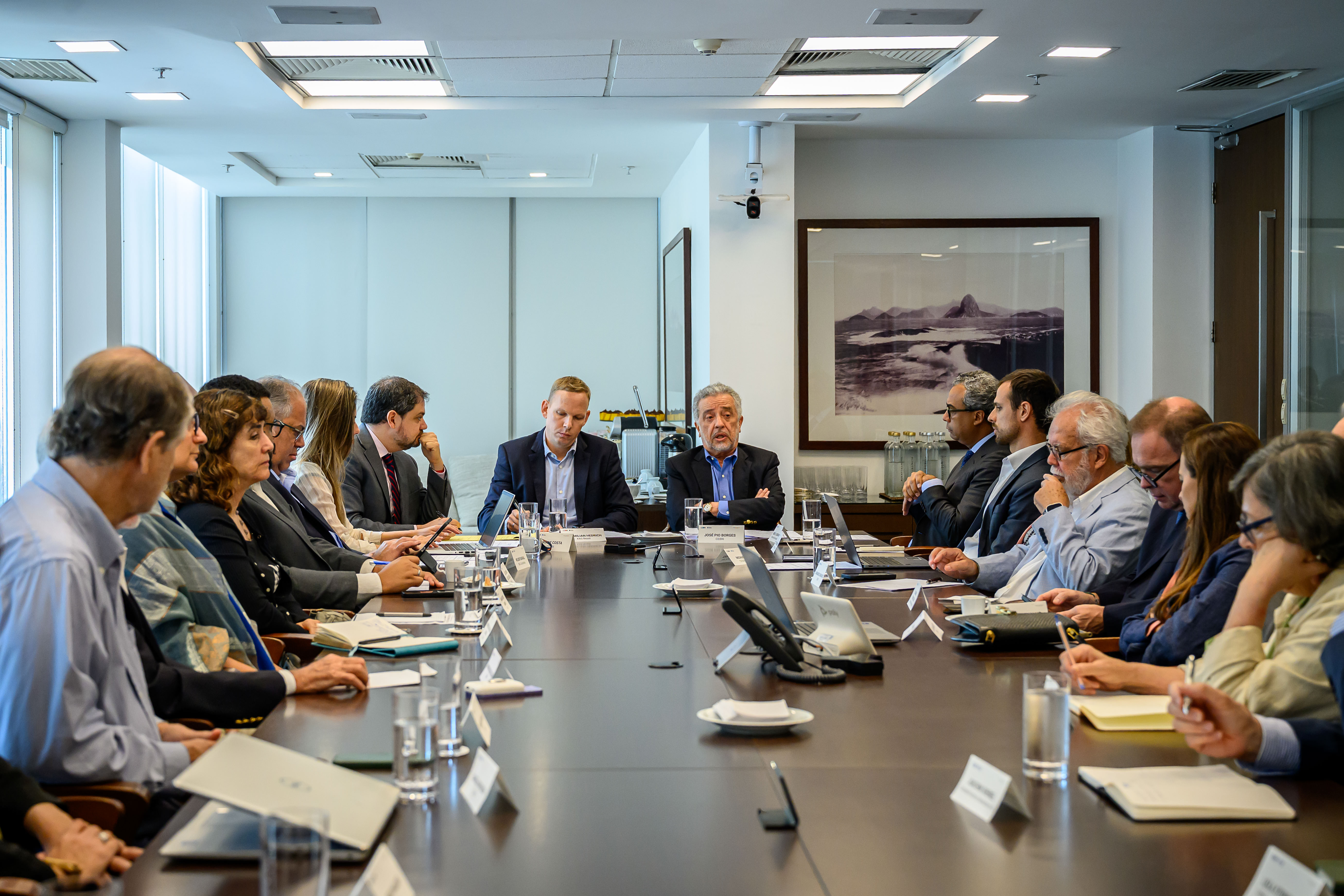CEBRI and KAS Brasil hold roundtable on Trump's first 100 days and their impact on global geopolitics and Brazil's positioning
- 01 may 2025
On Monday, April 28, the Brazilian Center for International Relations (CEBRI) convened the roundtable "100 Days of Trump and the New Geopolitics: Brazil Facing China and the U.S.", organized in partnership with the Konrad Adenauer Foundation in Brazil (KAS Brasil) and with support from the law firm Pinheiro Neto Advogados, a member of CEBRI's network of Members.
The return of Donald Trump to the U.S. presidency marked a significant shift with global ramifications, characterized by growing uncertainty and the U.S.'s withdrawal from free trade agreements. Experts gathered to analyze the impact of this scenario on Brazil's strategic dialogues with China and Europe—key players in the country's trade and diplomatic agenda.
The institutional opening of the event was conducted by José Pio Borges, Chairman of the Board of Trustees at CEBRI, Maximilian Hedrich, Director of KAS Brasil, and Renê G. S. Medrado, Partner at Pinheiro Neto Advogados. Ariane Costa, Deputy Director of the Geopolitics Program at CEBRI, and Matias Spektor, Senior Fellow at CEBRI and Full Professor at the School of International Relations at FGV, led the introductory presentation and analysis of the thematic panels, focusing on geopolitical shifts and their implications for international trade.
Panel I – "100 Days of the Trump Administration and Transformations in the Global Trade Regime"
The first panel brought together Abrão Neto, Senior Fellow at CEBRI and CEO of the American Chamber of Commerce for Brazil (Amcham Brasil); Constanza Negri, Manager of Business Diplomacy and Trade Competitiveness at the National Confederation of Industry (CNI) and Sherpa of B20 Brazil; and Welber Barral, Trustee and Founding Partner at BMJ Consultores and Brazil's Secretary of foreign trade (2007–2011).
The experts discussed the already noticeable changes in U.S. trade policy during the first months of Trump's new term, addressing both structural transformations in the global trade regime and their direct effects on Brazilian exports. The panel also explored the key risks and opportunities Brazil faces amid the reconfiguration of international trade norms and flows and how other global players, such as China and the European Union, interpret early moves in U.S. foreign policy.
Panel II – "U.S. vs. China: Strategic Rivalry and Brazil's Path Forward"
The second panel featured Ambassador Rubens Ricupero, Trustee Emeritus at CEBRI and Secretary-General of the United Nations Conference on Trade and Development (UNCTAD) from 1995 to 2004, Monica Herz, Senior Fellow at CEBRI and Full Professor at the Institute of International Relations at PUC-Rio, and Silvio Cascione, Head of the Brazil Office at Eurasia Group.
The discussion addressed the main points of tension between the United States and China, such as the competition for technological and industrial dominance, its impacts on global supply chains, and the repercussions for Brazil. The experts examined the challenges and opportunities this strategic rivalry poses, including the need to diversify partnerships and reposition the country within global production chains. The panel also discussed how the European Union has responded to this increasingly polarized landscape and what implications this holds for the global geopolitical balance.

